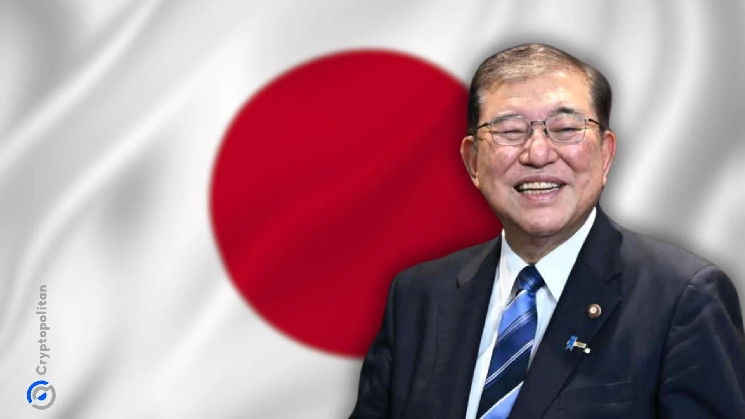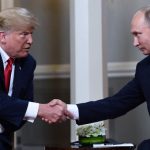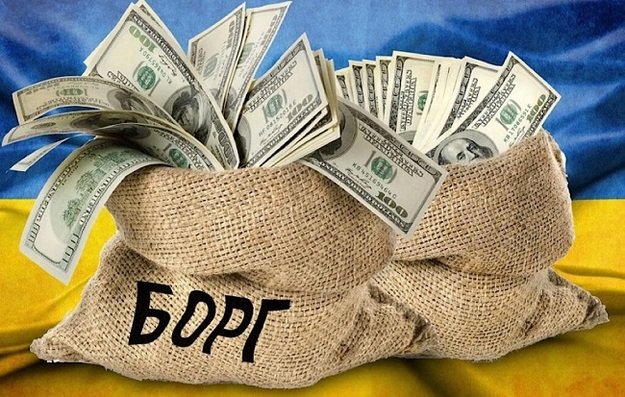As of Sept. 27, 2024 Liberal Democratic Party member Shigeru Ishiba has been voted the next prime minister (PM) of Japan. But Ishiba’s former role as defense minster and his affinity for taxes and revving the money printer, could be problematic for crypto enthusiasts in the country.
Christian. Military expansionist. Banker.
Incoming Japanese PM Shigeru Ishiba’s resumé isn’t one many might expect from a prime minister in Shintoist- and Buddhist-populated, constitutionally peaceful Japan. The Liberal Democratic Party (LDP) politician and former defense minister will succeed Fumio Kishida in helming the Japanese political machine as of Oct. 1, after a Sept. 27 vote.
Ishiba’s stated goals in general? — jack up taxes on investments and income, and increase military power.
Ishiba’s plan signals continuing crypto damage in Japan
Tokyo is a strange juxtaposition of forces when it comes to cryptocurrency. The same can be said for Japan as a whole. The original vision of Satoshi Nakamoto, bitcoin’s (ostensibly) pseudonymous creator, of peer-to-peer (P2P) electronic cash used freely without going through banks, remains alive and well in trading groups, at local businesses, and meetups.
But on the regulated side of things, Japan’s government has been the target of hot criticism in recent years, with massive taxes on crypto assets and the outlawing of privacy coins on exchanges. Still, trading of crypto on centralized exchanges is said to have surged in 2024.
With former prime minster Fumio Kishida now headed for the door, what could an Ishiba administration mean? For one: higher taxes on income and crypto investments.
Ishiba has stated that he wants to strengthen income and investment taxes, exempting from this general invasion those who invest via state-approved programs such as NISA (the Nippon Individual Savings Account), a limited tax-free investment program for approved assets which does not yet include cryptocurrencies (aside from approved ETF investments).
“I have no intention whatsoever of raising taxes on those who have increased their income through the new NISA,” Ishiba noted.
Still, echoing globally dominant U.S.-style economics, the new PM wants to increase defense spending, raise the minimum wage in Japan, and escape deflation, all of which mean, in very basic terms: yen printer go brrrrrrrrr.
While fiat currency failure, painful taxation, and devaluation once were commonly thought a boon to crypto users hedging against such events, greater centralization of markets and abandonment of the P2P ethos has led to fears for mainstream holders. One Japanese user of X wondered aloud: “Will the talk of tax easing for crypto go ahead if Ishiba is the president?”
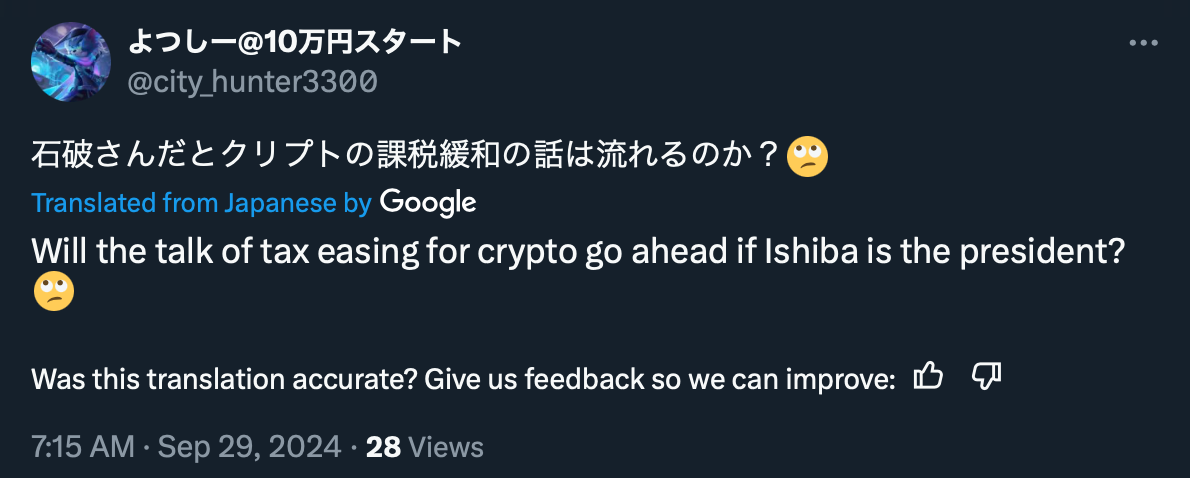
Other users of the social media platform seemed to be holding out hope for a so-called crypto-friendly Ishiba administration.
The Nikkei index notably took a sharp nosedive after the election.
Militarist Ishiba’s thoughts on Bitcoin unclear, bland advice for BOJ
Unlike his predecessor Kishida, Ishiba has yet to offer lip service to crypto at massive tech conferences, and is apparently focused more on the traditional economy and defense-related matters.
The former banker and Tottori politician has infamously called for military defectors or draft evaders (assuming conscription in Japan is reinstated, a position he has supported) to face the maximum possible punishment. He has further voiced strong support for forming an Asian version of NATO and revising the pacifist portions of Japan’s constitution, citing ostensible missile attacks and threats from North Korea.
Ishiba is also known for facilitating the “first-ever deployment of Japanese troops abroad without a UN Security Council authorization to Iraq in 2003.”
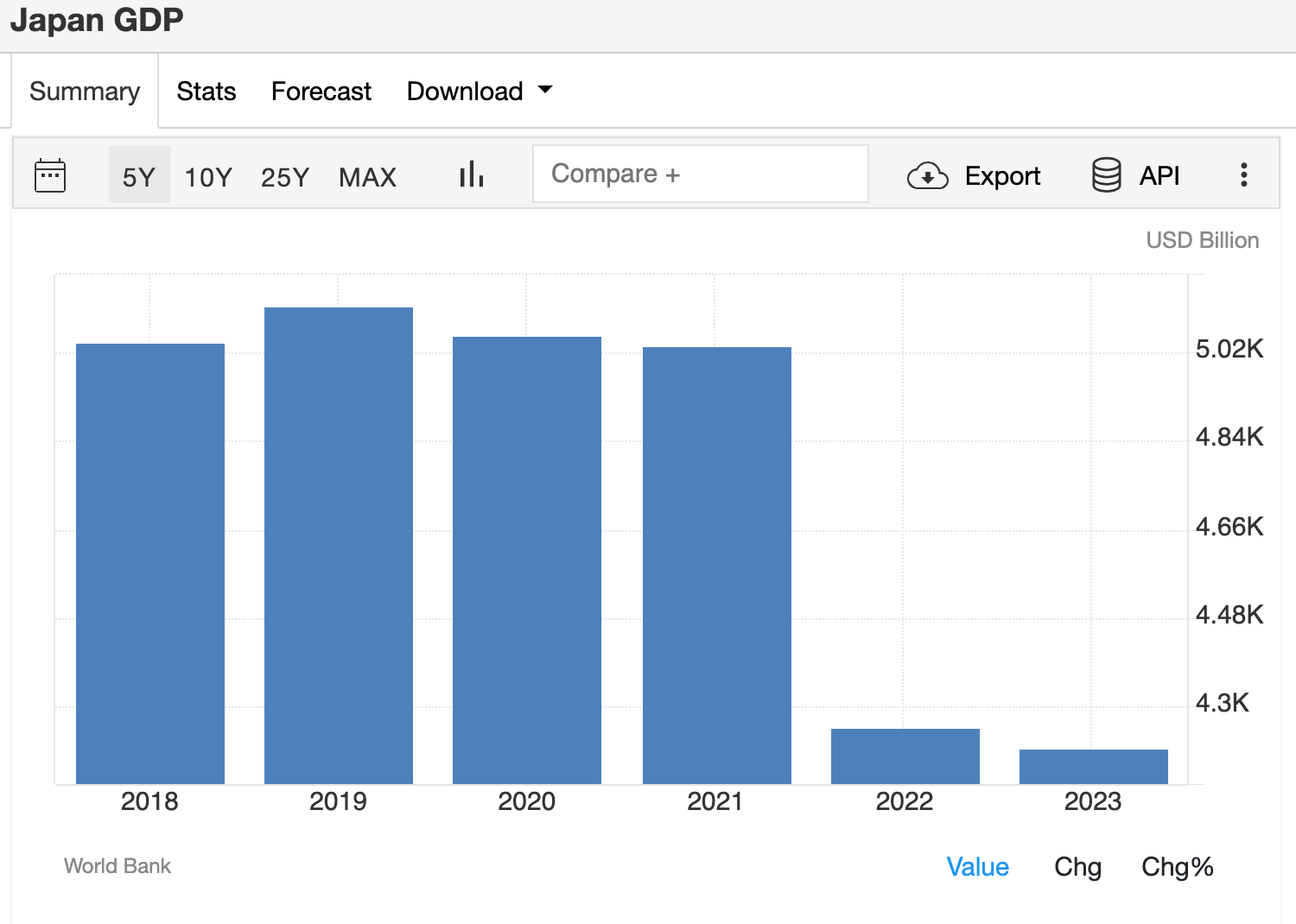
Source: Trading Economics/World Bank
While rampant militarism and expansionist arms policies might not seem to connect to crypto on the surface, greater unification with the U.S. war machine and ties to conflicts in the Middle East related to Israel could spell drastic effects on the market.
This not to mention a wider crackdown on crypto in Japan, as infamous parties like the DPRK’s “Lazarus Group” would be set up to become ever more prominent scapegoats under Ishiba’s eye, equating to even stricter know-your-customer (KYC) policies for the average exchange user.
Still, when it comes to fiscal policy, Shigeru Ishiba’s positions are muddy.
Sure, a segment of Japanese investors are relieved a more fiscally liberal opponent did not enter office, but Ishiba still favors “accommodative” and loose monetary policy from the Bank of Japan, while presumably supporting the BOJ’s recent hawkish moves to battle inflation. Something of an effective “nothing-burger” for residents of the land of the rising sun awaiting decisive economic change. Especially considering the current inflationary struggles and embattled yen.
As for those fossils still interested in Satoshi Nakamoto’s value proposition of cash detached from politics and banks, the sun sets and rises as always.


